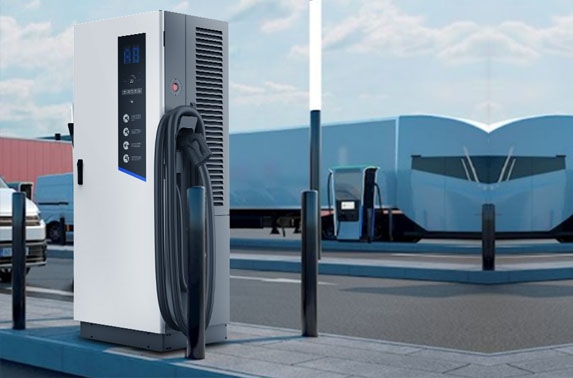
Products
Fast, Reliable, Everywhere

Solutions
Efficient, Innovative EV Charging Solutions.
News
We are committed to the innovation and application of EV charging.
Direct Current, the power the battery requires, is referred to as "DC" in this context. The majority of electric car chargers, however, recharge batteries using AC (alternating current) electricity. All EVs have a built-in converter or rectifier since batteries cannot receive AC power. To charge the batteries of electric vehicles, it transforms AC power into the DC electricity needed. When there is no conversion, fast DC charging is provided for vehicles.
The ways your new electric car may be charged shouldn't terrify you. You can encounter several different charger kinds on your EV tour. You'll encounter three different kinds of electric car chargers while driving: Level 1, Level 2, and DC Fast Charging.
An extraordinarily high percentage of passenger cars are able to accept DC charging. Electric vehicles (EVs) use direct current to recharge their batteries; hence it follows that almost all models are compatible with DC rapid charging. Some batteries have a 350 kW capacity, while others have a 50 kW capacity. Additionally, due to their smaller batteries, many electric vehicles need more capacity to charge via DC charging.
The DC fast chargers are essential:

While you are debating buying an electric car, if a DC fast charger is available near you, you should look into it. It would be best if you now had a better idea of DC fast charging and how it works in the modern world. It's important to understand why AC home chargers take longer. The following time you find yourself needing to recharge your EV's battery. Additionally, you will have the knowledge necessary to decide depending on the particulars of your case. You should shop at PIWIN as we can help you save both time and money. When you buy from us, the cost of a DC Charger is affordable.
